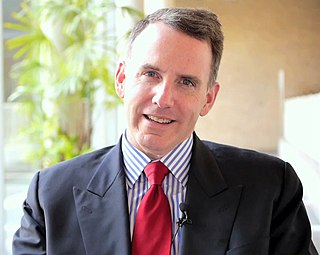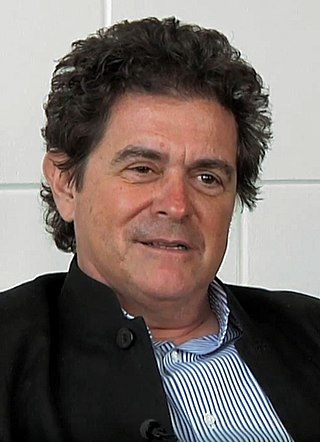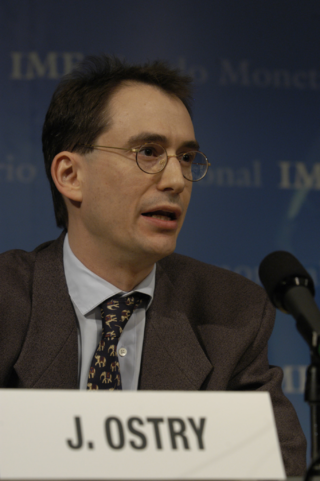
Smart growth is an urban planning and transportation theory that concentrates growth in compact walkable urban centers to avoid sprawl. It also advocates compact, transit-oriented, walkable, bicycle-friendly land use, including neighborhood schools, complete streets, and mixed-use development with a range of housing choices. The term "smart growth" is particularly used in North America. In Europe and particularly the UK, the terms "compact city", "urban densification" or "urban intensification" have often been used to describe similar concepts, which have influenced government planning policies in the UK, the Netherlands and several other European countries.

Urban design is an approach to the design of buildings and the spaces between them that focuses on specific design processes and outcomes. In addition to designing and shaping the physical features of towns, cities, and regional spaces, urban design considers 'bigger picture' issues of economic, social and environmental value and social design. The scope of a project can range from a local street or public space to an entire city and surrounding areas. Urban designers connect the fields of architecture, landscape architecture and urban planning to better organize physical space and community environments.
Neoliberalism is both a political philosophy and a term used to signify the late-20th-century political reappearance of 19th-century ideas associated with free-market capitalism. The term has multiple, competing definitions, and is often used pejoratively. In scholarly use, the term is often left undefined or used to describe a multitude of phenomena. However, it is primarily employed to delineate the societal transformation resulting from market-based reforms.

One of the major subfields of urban economics, economies of agglomeration, explains, in broad terms, how urban agglomeration occurs in locations where cost savings can naturally arise. This term is most often discussed in terms of economic firm productivity. However, agglomeration effects also explain some social phenomena, such as large proportions of the population being clustered in cities and major urban centers. Similar to economies of scale, the costs and benefits of agglomerating increase the larger the agglomerated urban cluster becomes. Several prominent examples of where agglomeration has brought together firms of a specific industry are: Silicon Valley and Los Angeles being hubs of technology and entertainment, respectively, in California, United States along with London, United Kingdom, being a hub of finance.

Richard L. Florida is an American urban studies theorist focusing on social and economic theory. He is a professor at the Rotman School of Management at the University of Toronto and a Distinguished Fellow at NYU's School of Professional Studies.

Urban sprawl is defined as "the spreading of urban developments on undeveloped land near a more or less densely populated city". Urban sprawl has been described as the unrestricted growth in many urban areas of housing, commercial development, and roads over large expanses of land, with little concern for very dense urban planning. Sometimes the urban areas described as the most "sprawling" are the most densely populated. In addition to describing a special form of urbanization, the term also relates to the social and environmental consequences associated with this development. In modern times some suburban areas described as "sprawl" have less detached housing and higher density than the nearby core city. Medieval suburbs suffered from the loss of protection of city walls, before the advent of industrial warfare. Modern disadvantages and costs include increased travel time, transport costs, pollution, and destruction of the countryside. The revenue for building and maintaining urban infrastructure in these areas are gained mostly through property and sales taxes. Most jobs in the US are now located in suburbs generating much of the revenue, although a lack of growth will require higher tax rates.

Edward Ludwig Glaeser is an American economist who is currently the Fred and Eleanor Glimp Professor of Economics at Harvard University, where he is also the Chairman of the Department of Economics. He directs the Cities Research Programme at the International Growth Centre.

Affordable housing is housing which is deemed affordable to those with a household income at or below the median, as rated by the national government or a local government by a recognized housing affordability index. Most of the literature on affordable housing refers to mortgages and a number of forms that exist along a continuum – from emergency homeless shelters, to transitional housing, to non-market rental, to formal and informal rental, indigenous housing, and ending with affordable home ownership. Demand for affordable housing is generally associated with a decrease in housing affordability, such as rent increases, in addition to increased homelessness.

Olivier Jean Blanchard is a French economist and professor. He is Robert M. Solow Professor Emeritus of Economics at the Massachusetts Institute of Technology, Professor of Economics at the Paris School of Economics, and as the C. Fred Bergsten Senior Fellow at the Peterson Institute for International Economics.

Simeon Dyankov is a Bulgarian economist. From 2009 to 2013, he was the deputy prime minister and minister of finance of Bulgaria in the government of Boyko Borisov. He has been a vocal supporter of Bulgaria's entry into the Eurozone. Before his cabinet appointment, he was the chief economist of the finance and private sector vice-presidency of the World Bank.

Claudia Dale Goldin is an American economic historian and labor economist. She is the Henry Lee Professor of Economics at Harvard University. In October 2023, she was awarded the Nobel Memorial Prize in Economic Sciences "for having advanced our understanding of women's labor market outcomes”. The third woman to win the award, she was the first woman to win the award solo.

Alberto Francesco Alesina was an Italian economist who was the Nathaniel Ropes Professor of Political Economy at Harvard University from 2003 until his death in 2020. He was known principally as an economist of politics and culture, and was famed for his usage of economic tools to study social and political issues. He was described as having “almost single-handedly” established the modern field of political economy, and as a likely contender for the Nobel Memorial Prize in Economic Sciences.
Matthew E. Kahn is a leading American educator in the field of environmental economics. He is the Provost Professor of Economics at the University of Southern California. Between 2019 and 2021, he served on the faculty of Johns Hopkins University as a Bloomberg Distinguished Professor of Economics and Business, with appointments at both Carey Business School and Zanvyl Krieger School of Arts and Sciences.

Nadarajan "Raj" Chetty is an Indian-American economist who is the William A. Ackman Professor of Public Economics at Harvard University. Some of Chetty's recent papers have studied equality of opportunity in the United States and the long-term impact of teachers on students' performance. Offered tenure at the age of 28, Chetty became one of the youngest tenured faculty in the history of Harvard's economics department. He is a recipient of the John Bates Clark Medal and a 2012 MacArthur Fellow. Currently, he is also an advisory editor of the Journal of Public Economics. In 2020, he was awarded the Infosys Prize in Economics, the highest monetary award recognizing achievements in science and research, in India.
The chief economist of the International Monetary Fund (IMF) is the economic counsellor and director of the fund's Research Department. He is responsible for providing independent advice to the fund on its policy issues, integrating ideas of research in design of policies, conveying these ideas to the policymakers inside and outside the fund and managing all research done at IMF. The chief economist is a member of the Senior Leadership of the IMF.

Jonathan David Ostry is Professor of Economics, Global Affairs and Public Policy at the University of Toronto, cross-appointed to the Munk School of Global Affairs & Public Policy and the Department of Economics. Prior to his appointment to the University of Toronto faculty, Ostry served as Professor of the Practice in the Department of Economics at Georgetown University. Ostry is also a Research Fellow at the Centre for Economic Policy Research (CEPR) in London, England, and a Non-Resident Research Fellow at Bruegel in Brussels. Prior to his academic appointments, Ostry served in senior roles for more than three decades at the International Monetary Fund (IMF) in Washington DC, including as Deputy Director of the Research Department and Acting Director of the Asia and Pacific Department.
Innovation districts are urban geographies of innovation where research and development (R&D) strong institutions, companies, and other private actors develop integrated strategies and solutions to develop thriving innovation ecosystems–areas that attract entrepreneurs, startups, and business incubators. Unlike science parks, innovation districts are physically compact, leverage density and high levels of accessibility, and provide a “mash up” of activities including housing, office, and neighborhood-serving amenities. Districts signify the collapse back of innovation into cities and is increasingly used as a way to revitalize the economies of cities and their broader regions. As of 2019, there are more than 100 districts worldwide.
Emmanuel Farhi was a French economist who served as the Robert C. Waggoner Professor of Economics at Harvard University from 2018 till his death in 2020. A specialist in macroeconomics, taxation and finance, he also served on the Conseil d’Analyse Économique from 2010 to 2010. On July 23, 2020, aged 41, Farhi committed suicide.
William R. Kerr is the Dimitri V. D'Arbeloff – MBA Class of 1955 Professor of Business Administration professor at Harvard Business School, where he is a co-director of Harvard's Managing the Future of Work project and faculty chair of the Launching New Ventures program for executive education.
Melissa Dell is an American economist who is the Andrew E. Furer Professor of Economics at Harvard University. Her research interests include development economics, political economy, and economic history.













